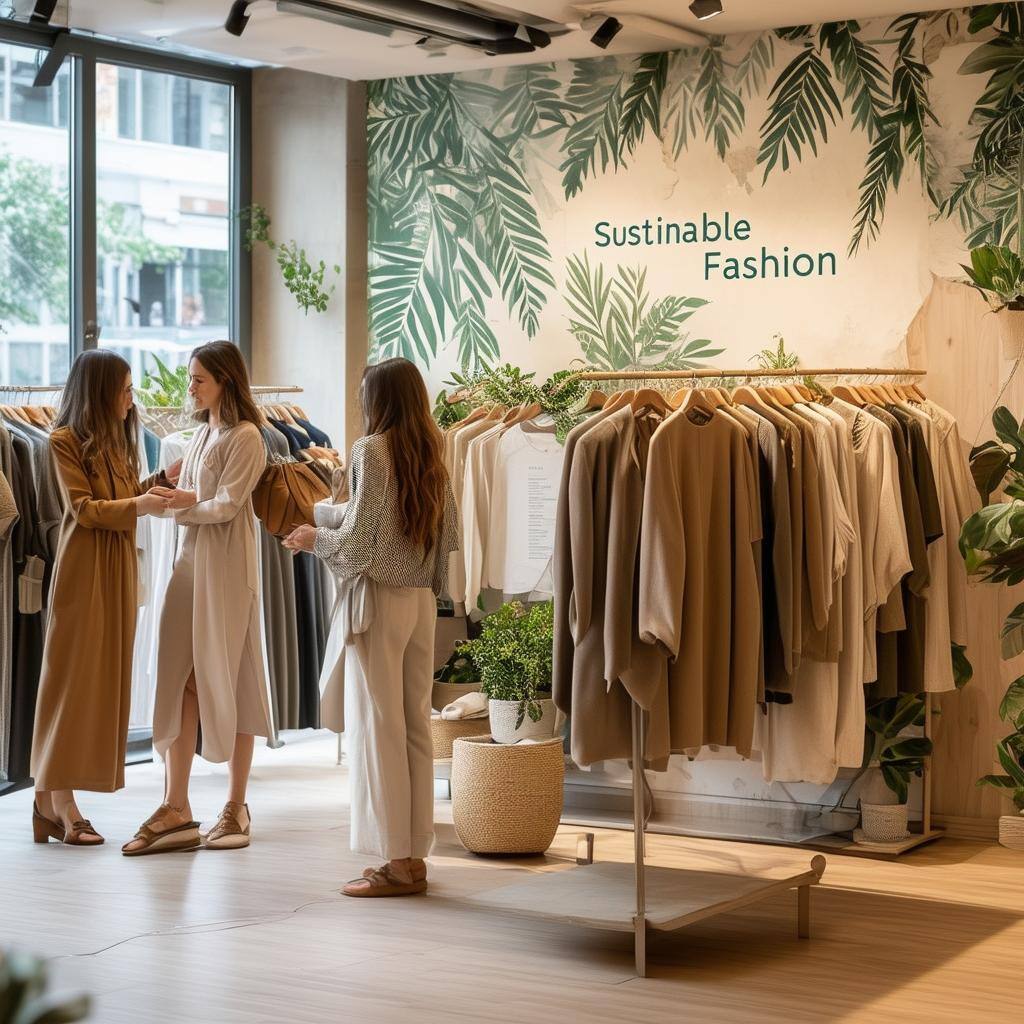Sustainability in Retail: How Ethical Partnerships Drive Change

Sustainability in fashion retail is no longer a trend—it’s a necessity. As environmental concerns grow and consumers demand greater accountability, businesses must adapt their practices to remain competitive. This shift is especially evident in the retail sector, where transparency and sustainability have become key drivers of success. Brands like Boxhill Fashion help retailers align with sustainability trends by offering high-quality, ethically sourced women’s clothing designed to stand the test of time. These partnerships empower retailers to meet consumer expectations while reducing environmental impact.
The demand for sustainable retail is driven by factors like:
- Increasing consumer awareness of climate change and unethical labor practices.
- The rise of conscious shopping habits, especially among younger generations.
- Pressure on retailers to minimize waste and support circular fashion models.
For retailers, aligning with sustainable values is no longer optional. It is a critical component of building brand loyalty and ensuring long-term profitability.
How Partnerships Drive Sustainability in Retail
Collaborating with ethical suppliers is crucial for retailers aiming to integrate sustainability into their operations. By prioritizing quality, ethical sourcing, and environmentally friendly practices, suppliers equip retailers to meet the demand for eco-conscious fashion. Here are key ways partnerships with sustainable brands can drive retail’s sustainability efforts:
-
Timeless, Durable Designs: Brands like Boxhill Fashion focus on creating timeless collections that are not driven by fast-changing trends. These pieces are designed to outlast fleeting fads, reducing the volume of clothing that ends up in landfills. By prioritizing quality over quantity, such partnerships support slow fashion, which directly addresses the waste crisis plaguing the industry.
-
Ethical and Environmentally Friendly Sourcing: Sustainable suppliers ensure their materials and production methods align with environmental and ethical standards. From using organic cotton and recycled fabrics to working with fair-trade suppliers, these practices not only minimize ecological harm but also improve the lives of workers across the supply chain.
-
Marketing Sustainability: Many ethical suppliers provide retailers with tools and strategies to effectively communicate the value of sustainable products. Highlighting certifications, production methods, or material origins helps retailers educate their customers, fostering trust and encouraging informed purchases.
When suppliers provide sustainably made products and tools for promoting them, they empower retailers to integrate sustainability seamlessly into their operations.
The Retailer’s Role in Promoting Sustainability
While suppliers and partners lay the foundation, retailers have a unique opportunity to amplify the message of sustainability. Retailers act as the bridge between their suppliers and the end consumer, and their actions can significantly influence shopping habits. Here are actionable steps retailers can take to integrate sustainability into their strategies:
-
Partner with Like-Minded Brands: Collaborate with suppliers who share your commitment to ethical and eco-friendly practices. By working with brands like Boxhill Fashion, retailers gain access to thoughtfully crafted products that align with sustainable values, helping build trust with environmentally conscious consumers.
-
Highlight Sustainable Products: Give sustainable items the visibility they deserve. Dedicate sections in your store or website to feature these products prominently. Use signage, labels, and tags that communicate key details about the sustainability efforts behind each piece.
-
Educate Customers: Today’s consumers value transparency. Offer insights into how and where products are made, and explain why sustainable choices matter. Consider hosting in-store events or using digital platforms to share content about the benefits of ethical fashion. Empower your customers to make more responsible buying decisions.
By actively promoting sustainable practices, retailers not only differentiate themselves but also contribute to building a more conscious consumer base.
Building a Sustainable Future Through Partnerships
Creating a truly sustainable retail industry requires collaboration at every level of the supply chain. Retailers and their suppliers must work together to implement practices that reduce waste, prioritize ethical sourcing, and educate consumers about sustainable fashion. These partnerships ensure that both parties achieve their shared goals of environmental stewardship and long-term profitability.
When retailers choose brands like Boxhill Fashion, they gain more than just access to high-quality, timeless women’s clothing. They also position themselves as leaders in sustainability—responding to consumer demand while making a positive impact on the planet. By working hand in hand, ethical brands and retailers can drive meaningful change, paving the way for a future where fashion is both beautiful and responsible.
Related Posts
Join the movement.
Your Entourage journey starts here. Join Australia's largest community of over 500,000 business owners and entrepreneurs, and receive instant access to exclusive content and updates delivered straight to your inbox.


